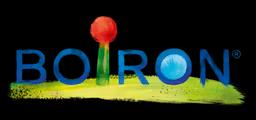Homeopathy, another way to treat, respectful and safe

Homeopathy: more than just medicines, a care system
Homeopathic therapeutics is recognised by the World Health Organisation (WHO) as a care system. It involves homeopathic medicines, healthcare professionals and a philosophy of care built on the following foundations:
- effectiveness and safety of homeopathic medicines
- prevention
- patients in control of their own health
- comprehensive care of patients
- and an individualised and personalised approach to treatments
Comprehensive approach to patients
Homeopathic therapeutics means caring for the patient and their disease, not just the disease.
Personalised homeopathic treatments
Homeopathy is an “individualised” therapy as it considers each individual as being unique, taking their individual reaction into account. Every homeopathic treatment, even at symptomatic level, can be personalised.
To improve your knowledge of homeopathy, find out about our FAQ:
- Better knowledge of homeopathy
- How to use homeopathy

A therapy that falls within the scope of conventional medicine as well as alternative medicines
Like allopathic medicines, homeopathic medicines have been listed in the French and European pharmacopoeias respectively since 1965 and 1995 and are, as a result, registered as medicines by the health agencies of many countries.
They are prescribed or recommended by healthcare professionals such as doctors, midwives and pharmacists, who oversee this method of care, thereby guaranteeing the pertinence of the treatment and the safety of patients.
Homeopathy is also consistent with alternative medicines. It treats diseases and manages symptoms via a comprehensive and/or symptomatic approach. It cares for patients by preventing diseases or disease recurrence via terrain treatment. Lastly, it improves their quality of life by treating deleterious symptoms as supportive care for serious chronic diseases such as cancer.
Therapy suited to the needs of the body
Homeopathic therapeutics is not “anti”. Homeopathic treatments do not conflict with physiological phenomena. On the contrary, they support them. At the same time, they respond to the patients’ growing demand for natural remedies: respect for physiology, absence of dose by weight and absence of toxic effects on the body.
A response to public health challenges
As a reliable therapy without any risk to patients, homeopathy also responds to the major public health challenges defined by the World Health Organisation.
- It enables preventive action to be taken in the context of numerous illnesses.
- It contributes to the fight against antibiotic resistance.
- It prevents drug interaction risks linked to polymedication.
- It limits drug overconsumption.
Respectful of the individual, homeopathy is also a responsible choice on the scale of the community.

Medicines in keeping with environmental protection
The manufacturing of homeopathic medicines has a very limited impact on the environment (See Boiron’s environmental policy).
Furthermore, unlike conventional medicines, the use of homeopathic medicines by patients does not generate complex discharge to be eliminated by water treatment plants.
Treatments avoiding the iatrogenic effect of conventional chemical treatments
Although useful in the management of certain diseases, conventional medicines taken alone on in combination can have relatively serious adverse effects on the patients’ health and create drug iatrogenesis (adverse effects caused by medicines).
In light of their composition, homeopathic medicines pose no iatrogenic risks, which is why they can be used alone as first-line treatment where appropriate, or in combination with other conventional medicated treatments.
